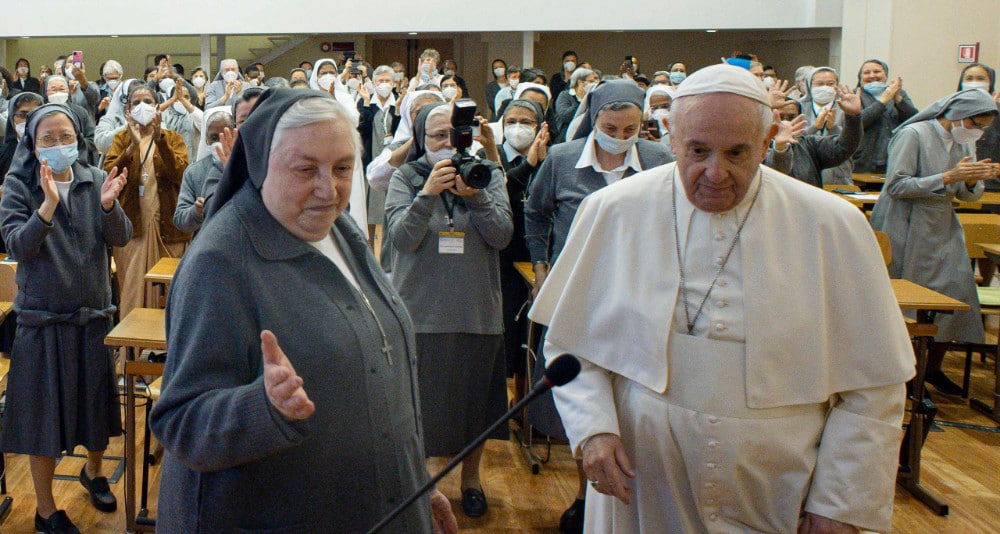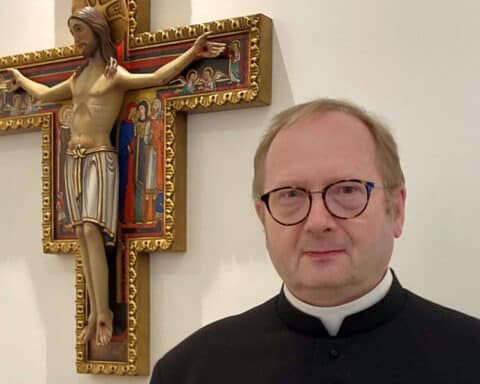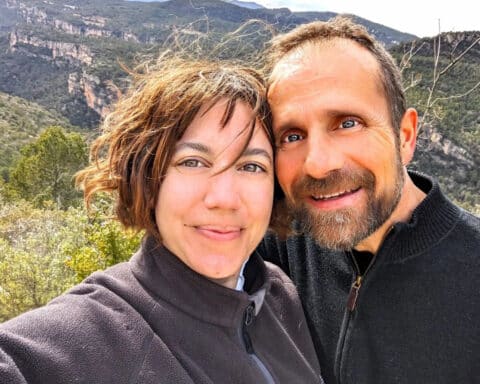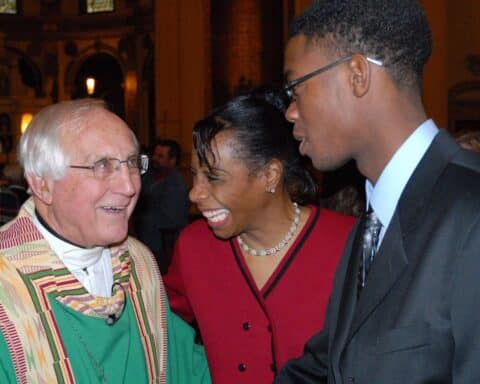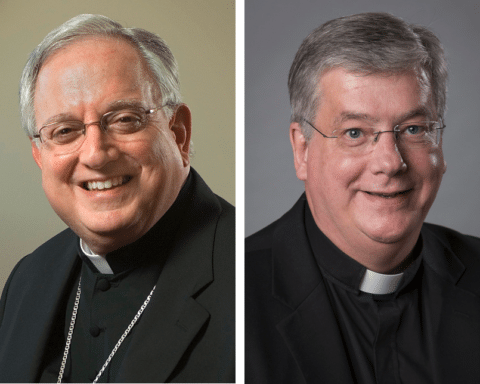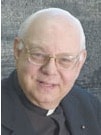
What is the Dicastery for Bishops? Think of the federal government with its many responsibilities, paying the government’s bills and collecting taxes, maintaining the military for the country’s defense and providing thoroughfares for the transport of goods and of people.
Hence, the government has departments, each concentrating upon a particular purpose. The Department of the Treasury deals with money. The Department of Defense operates the military. The Department of Transportation sees that Americans, or their products, move safely and as quickly as possible from one place to another.
The Catholic Church, worldwide in interest and presence, operates in the same way. Its headquarters in Rome has departments, each called a “dicastery.” One looks at Catholic education, another at liturgy and so on. The Dicastery for Bishops nominates bishops and oversees bishops’ performances.
Heading each dicastery is the “prefect,” serving by appointment of the pope. The current prefect of the Dicastery for Bishops is Cardinal Marc Ouellet from Quebec. A Sulpician, a member of the community of priests that runs St. Mary’s Seminary in Baltimore, this country’s oldest seminary, he taught in Canadian Sulpician seminaries.
From 2002 to 2010, he was archbishop of Quebec, and primate, or senior bishop, of Canada. In 2003, Pope St. John Paul II named him a cardinal. Pope Benedict XVI assigned him as prefect of the Dicastery for Bishops in 2010. He has long experience in dealing with priests, and with dioceses, as they seek to make the Church relevant in the territories.
The Dicastery for Bishops has a considerable staff, including specialists in all aspects of life, not just religious, in places from Australia to Thailand, Angola to Guam.
Selecting bishops is not mysterious. It is not the Church’s answer to pork barrel politics.
In every country is a representative of the pope, or apostolic nuncio, directly appointed by the pope, charged with maintaining contacts between the local Church and Rome and observing conditions in dioceses. These representatives also look for possible bishops. The current apostolic nuncio in Washington is Archbishop Christophe Pierre, French, an experienced Vatican diplomat.
Considering possibilities for new bishops, a local bishop may act on his own observations, or he may consult the priests of his diocese. Why? Priests know each other and the work involved.
Then, the bishop submits his suggested candidate to the other bishops of his province. (Dioceses are grouped together in provinces, the six dioceses in Ohio in the Province of Cincinnati, and the six dioceses of Louisiana in the Province of New Orleans, and so on.)
Bishops of the province begin their review. If they think that a proposed candidate’s skills are impressive, the name goes to the papal representative, who himself initiates a more detailed investigation. Priests who have had contact with the candidate, and others, are contacted, usually by letter. No vague reply is acceptable.
Names of candidates with good marks proceed to the Dicastery for Bishops, where further, even more intensive research is conducted. If the candidate survives staff review, his name goes before the members of the dicastery in Rome. Think board of directors. American Cardinal Blase J. Cupich of Chicago is a member. The group meets face to face every other Thursday in Rome. Thanks to modern jet travel, many members attend. They discuss candidates and vote about recommendations to the pope.
If he approves a nomination, the candidate is contacted and asked if he will accept.
The dicastery also considers removing bishops, as happened during the clergy sex scandal. It can, and does, investigate management of dioceses.
The pope’s recent appointments to the Dicastery for Bishops were another effort to bring to Church administration perceptions of persons who are in no “old boys’ network” and outside the rare air of priestly life.
Msgr. Owen F. Campion is OSV’s chaplain.

